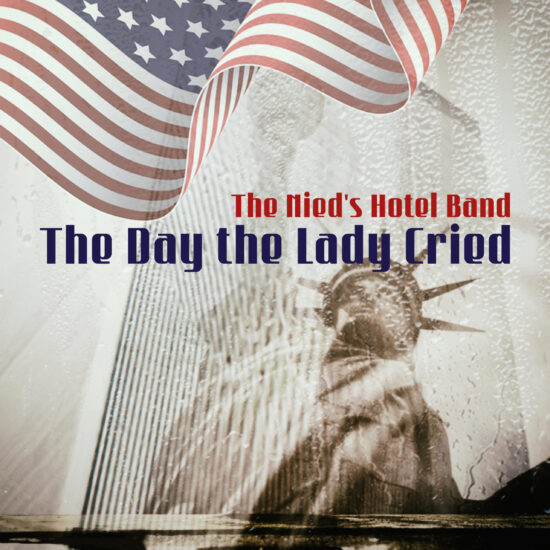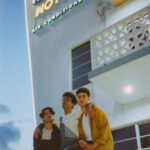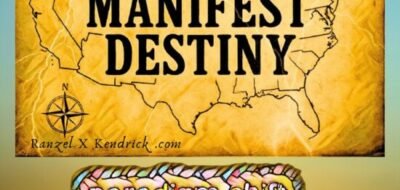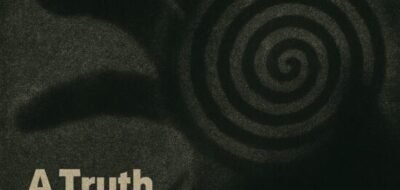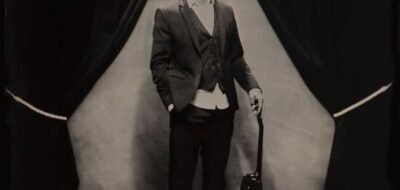The Day the Lady Cried is the latest release from The Nied’s Hotel Band, featuring John Vento. Anyone familiar with John Vento’s solo work will immediately know that this is likely to be a very personal, specific song, especially when you know that the eponymous ‘Lady’ of the title is the Statue of Liberty.
Visiting the Lady is a very special event, and the visiting day, if done properly, will also include a trip to the Ellis Island museum on the way to Liberty Island. Both locations are highly bound up in New York City’s identity and both are very powerful places with heaps of history and a whole book of emotions associated with them.
The song evokes the events of 9/11 but also refers to the place of the Lady in New York history, and infers that the Lady cried for the fate of her city on that day. She was mad at the outcome, but hopeful that her people would come through the events. Vento’s voice is echoed by his female band member, even though this sounds more like one of his introspective solo recordings than a Nied’s Hotel band song.
John Vento (www.johnvento.com) may be a bit of a musical chameleon, but he knows how to commemorate events with style and passion. His recent solo release That Damn War (Father and Son) is another intensely personal song, describing events which sound personal to him even if they are not. Maybe he’s not so much of a chameleon after all, but simply has the ability to write songs which touch many people while sounding like he’s singing about something unique to him.
Vento has been rather busy since 2019, pandemic or not. He released Love, Lust and Other Wreckage in that year, which received the IMEA Award for Best Americana Album. The singles Rainbows And Lightning, Baby Blues, Humble Way and I Hope I Don’t Fall in Love with You (a Tom Waits cover) all received national airplay. His single Well Yeah Maybe reached #1 on the South African iTunes charts. It’s fair to say that he can also craft an earworm of a tune. He was voted a January 2019 Billboard Magazine Emerging Artist and has also won awards for his non-profit work with Band Together Pittsburgh.
He is currently releasing songs from his solo project Brick by Brick, which involves new singles on a monthly basis. Each song is also released with a video, a lyric sheet and some information on the background and writing of the song. One of the songs is the #2 iTunes Rock Songs single No One Wears A Watch Anymore. The title alone is enough to raise a laugh, although the makers of fitness wristwear might be slightly annoyed, given what they call their products. Another stand out track from Vento’s solo work is the #1 UK iTunes Gospel song, Let God Drive, a song which at first seems to be for the times currently unfolding in America, but becomes a song for people who have lost their way regardless of why or where.
This is indicative of John’s own view of life, as he has been very active in his local community, founding and running a listening space for musicians to perform where all are welcome. This is not a club or a venue, but a space for acoustic musicians to play without background noise. Anyone who finds peace in performing or listening to music is welcome to attend, as he recognises the healing power of music.
A recognition of someone’s surroundings and the effect events have on others is reflected in The Day the Lady Cried. The Statue of Liberty is also such an icon that anything which affects New York can be said to affect her. The Lady is held in high regard by many residents and visitors, and has a number of nicknames including the Grande Dame, the Green Goddess, America’s Freedom, Lady with a Torch, Mother of Exiles, America’s Great Lady, Mother of Freedom, Saint Liberty, Lady of the Harbor and Aunt Liberty. She is one of the most popular tourist destinations in the USA, and, as this song shows, a metaphor for Manhattan, New York City and hence for the whole country of the United States of America.
…voices from heaven
voices from pain
those who paid so dearly
sure will rise again.
All those who loved them
will never them die
the freedom that they cherished
on the day the lady cried.



